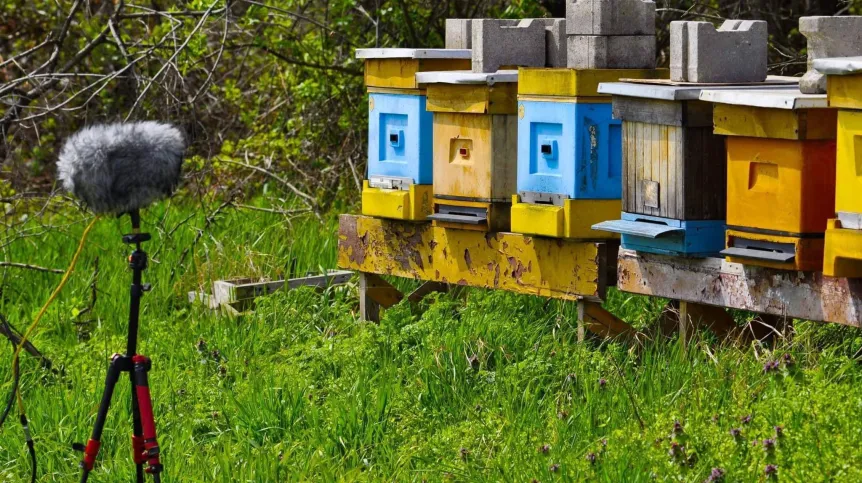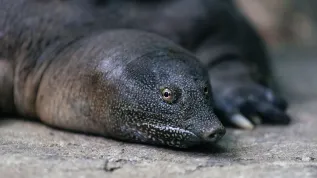
By ‘eavesdropping’ on bees in hives, scientists in Wrocław have managed to not only hear their buzzing, but also their ‘stomping’ and communicating.
Anna Tomańska from University of Environmental and Life Sciences will now check to see what sounds the bees make when they are happy, anxious or sick in an attempt to understand the specifics of bees communication better.
Tomańska said: “I knew that for the project to succeed, the hives had to be soundproofed and fitted with good microphones as well as heat and humidity sensors. I used popular, Greater Poland wooden beehives.
“I equipped them with acoustic foams, installed the necessary electronics and invited a bee family, which quickly settled inside. Then, two more families joined.”
For the last few months, the student from the university’s Faculty of Veterinary Medicine has been recording sounds from the hive, registering every drop in humidity and temperature and analysing them.
In the next steps, the scientists will check the differences in bee communication when there is a queen with more or less workers in the hive, one queen or two queens.
Tomańska said: “We want to identify the sounds that calm bees make and those that are heard when they are alarmed.
“The same applies to temperature: in what situations it drops or rises. The analysis and conclusions from this research will certainly help beekeepers.
“They will be able to prevent dangerous situations in the apiary remotely, using electronics.”
She adds that the project also has an artistic dimension and that a radio broadcast is being created as part of the research.
The hives are located in the new apiary in the Owl Mountains. The scientific supervisor of the bioacoustics project is Professor Paweł Chorbiński.
Tomańska received a scholarship from the 'Implementation Master's Student at the Wrocław University of Environmental and Life Sciences' programme.
PAP - Science in Poland
kol/ agt/ kap/
tr. RL













